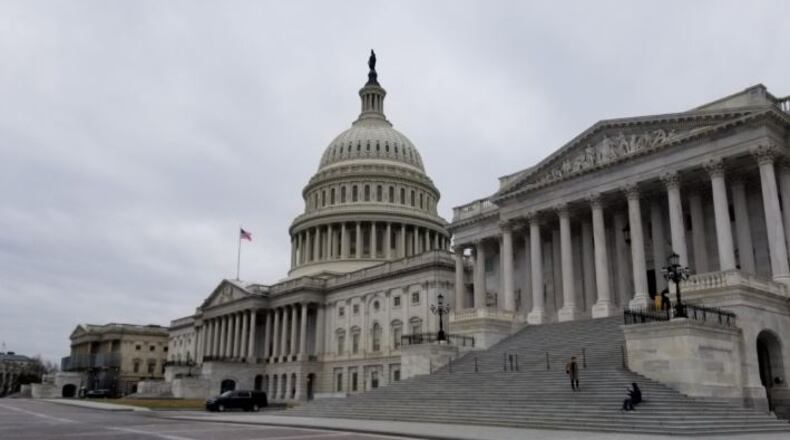"We support additional investment in infrastructure, particularly as it relates to our legal ports of entry," said Rep. Hakeem Jeffries (D-NY), the head of the House Democratic Caucus.
How all of that gets sorted out in the next two-plus weeks is anyone's guess, as lawmakers face a clear deadline for action, with the chance of another shutdown looming just two weeks from Friday.
The basic starting point for negotiations is simple - this is on the Homeland Security Appropriations bill, which funds border security, immigration, the Coast Guard and more.
In the first two years of the Trump Administration, Democrats joined with Republicans in approving $1.6 billion two different times for border security - with some of that money specifically directed for border fencing.
For example, in the Omnibus funding bill which passed in 2017 - a few months into President Trump's time in office - the House and Senate agreed to use some of that border money to build "approximately 65 miles of pedestrian fencing along the southwest border in the Rio Grande Valley Sector."
Then in 2018, when lawmakers finally finished up their spending work, Democrats and Republicans agreed on a series of border fencing projects near San Diego, along the Rio Grande, and in other border regions.
This was the money set aside specifically in the 2018 funding for the Department of Homeland Security:
While Democrats have not as yet set out the details of their own security spending plan, they have made clear they want these talks to focus on more than just the border fence/barrier/wall discussion.
"I will keep fighting for humane immigration policies that secure our borders, hold our agencies accountable for mistreatment of migrants, keep families together, end child detention, reduce the number of detention beds," said Rep. Lucille Roybal-Allard (D-CA), one of three California Democrats on the conference committee.
One unknown at this point is the ultimate scope of any agreement - normally, the members of the House and Senate Appropriations Committees would only deal with spending - how much to spend on a border fence, how much to spend on immigration judges, how much to spend on ICE agents and border patrol agents, etc.
But President Trump has also proposed temporary protections for about 700,000 younger illegal immigrants under DACA, and for 300,000 others at risk of deportation after having their "Temporary Protective Status" revoked. Usually, those type of policy decisions would not be settled in a spending bill.
"The focus of this right now is border security," said White House Press Secretary Sarah Huckabee Sanders. "We'd like to see that happen. And the President would love to deal with the overall problem of illegal immigration, fixing a number of the loopholes that would prevent some of those things from happening so that we could move forward with a system that actually works and functions."
One interesting wild card in the midst of negotiations will be next week's State of the Union Address, which will certainly give President Trump a chance to set out his demands for any border security deal, in a speech now set for February 5.
"It needs to be fixed and the President is going to do what it takes to address it," Sanders said on Monday.
About the Author

